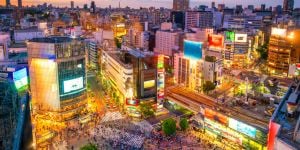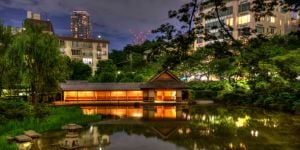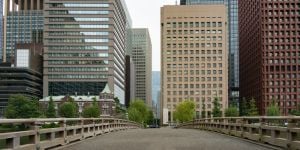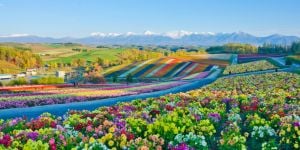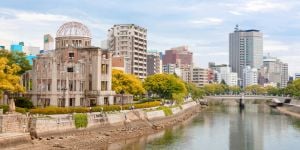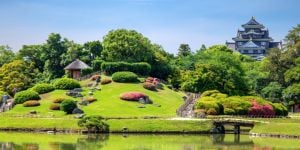I and my Japanese partner have been together since 1981 and I have visited her often over the years.
She lives outside Kyoto, not far from a fairly large town called Kameoka.
On the local bus over the years I have noticed a growing number of abandoned houses - some only recently vacated, with cars still parked outside and presumably still furnished.
Usually this is the result of population decline - or people tending to congregate more in the larger cities or move in with married children. Also, with the huge subsidies given to older residents, these abandoned houses may be the result of old people moving into care - a major industry in Japan.
From talking to people in my limited Japanese, it seems that abandoned houses are frequently available for takeover. Apparently each local council has a special department - usually with limited English skills - where a visitor may be put in touch with the families of home owners who have recently abandoned their houses through old age or relocation. Effectively what seems to happen is that a foreigner may negotiate terms with younger family members or their legal representatives to take over these houses. I can imagine such an arrangement suiting Australians quite well, since we seem to be more adaptable than many other Western types and are extremely DIY when it comes to budget living.
In all dealings with the Japanese, it is important to remember that these people are very formal.
Dealings between people are not based on personal contact, as in Australia, but practically always through a third party. I myself am about to investigate the purchase of a property in Japan and have prepared a list of English-speaking professional people to make sure that all goes smoothly. But the best advice of all is just learn Japanese. Courses are freely available from many sources and the costs are almost never a problem. Although a shy people, you will be made to feel welcome in Japan
Bear in mind that you should focus on recently abandoned houses, since the weather in Japan can be brutal and Japanese houses are more lightly constructed than in other countries, although the frames are usually very strong to resist earthquakes. Keep away from hillsides and tall trees, since landslides are a constant problem and if you don't plan to drive a car, choose somewhere on a good bus service. If you do plan to drive, it's on the same side as Australia, but you will be expected to have a Japanese license for any stay beyond a visit. Several homes I have noticed that have remained abandoned for several years have deteriorated quickly, with roofs falling in and trees growing over road access. To further investigate this topic, simply go online and see what you can find. Or contact your local Japanese embassy or consulate and discuss the matter there.
